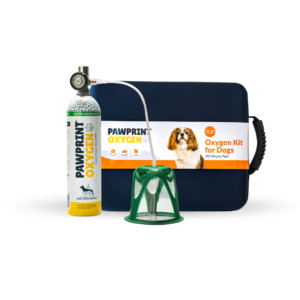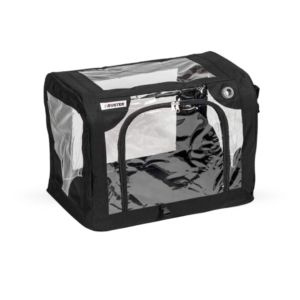What is Congestive Heart Failure (CHF)?
Congestive heart failure is a disease that occurs when the heart is unable to pump enough blood to meet the body’s needs. It can result from an inherited defect in heart valves or muscle, or it can be caused by high blood pressure, coronary artery disease, diabetes mellitus, and other conditions. Congestive heart failure occurs most often in middle-aged dogs and cats; however, young animals may be affected as well.
A form of heart disease which involves the heart losing its ability to pump blood efficiently.
Congestive heart failure (CHF) is a condition in which the heart loses its ability to pump blood efficiently. This can lead to fluid build-up in the lungs and other parts of the body, causing them to become congested.
The main symptoms of CHF are coughing, breathing difficulties and weight gain. Other symptoms include leg swelling, increased thirst and urination, fatigue or shortness of breath during exercise.
Causes of CHF include high blood pressure (hypertension), heart valve disease and congenital defects of the heart that were inherited by your pet from his parents before he was born.
It takes, on average, of two years for your vet to diagnose chronic renal failure in dogs with kidney disease due to their low levels of uric acid in their urine
The differences between Right and Left-Sided Congestive Heart Failure
Left-sided CHF is the more common diagnosis of the two conditions; clinical symptoms vary between the two conditions so pay attention to your pet’s symptoms when evaluating.
Right-sided congestive heart failure (RS-CHF)
When the heart contracts or pumps, instead of the right ventricle pushing the blood through the lungs for oxygenation, some blood leaks through the tricuspid valve (the valve between the right atrium and right ventricle) back into the right atrium. This blood backs up into the systemic circulation (the main circulation of the body) and consequently becomes congested.
Fluid accumulates in the abdomen, interfering with the function of the organs in these areas. The abdomen may fill with fluid, a condition called ascites. Fluid may also leak from veins in the limbs, causing swelling, known as peripheral edema.
Left-sided congestive heart failure (LS-CHF)
In LS-CHF when the heart contracts or pumps, instead of the left ventricle pushing the blood into the systemic circulation, some blood leaks through the mitral valve back into the left atrium, and then it backs up into the lungs.
The fluid then seeps into the lung tissue resulting in pulmonary edema. This fluid buildup causes coughing and difficulty breathing.
Common symptoms of CHF in Pets
symptoms of congestive heart failure in pets include:
- Persistent Coughing
- Difficulty Breathing
- Shortness of Breath
- Fainting
- Panting
- Restlessness
- Lack of appetite
- Weight loss, or sometimes, weight gain (because the animal is retaining fluid)
- Vomiting and/or diarrhea (depending on whether it’s the left side of the heart that’s failing)
What Causes Congestive Heart Failure?
Congestive Heart Failure can happen to any pet however most pets who are effected and diagnosed with CHF are middle age to older and certain breeds are more susceptible to the condition.
Common Causes of CHF in Pets Include:
- Heartworm Disease
- High Blood Pressure
- Tumors
- Pregnancy
- Heart Rhythm Abnormalities
- Defects in Heart Walls
Preventing Congestive Heart Failure in your Pet
While there is no way to prevent Congestive Heart Failure in your pet, certain breeds are genetically predispositioned to the disease. Knowing if your pet’s breed is susceptible to CHF may allow you to diagnose the disease earlier, take the appropriate measures to extend the life of your pet and access medication from your Veterinarian sooner, rather than waiting.
Congestive heart failure has a higher prevalence in small-breed and toy-breed dogs, including:
- Chihuahuas
- Yorkies
- Cavalier King Charles Spaniels
- Pomeranians
- Poodles
- Malteses
- Shih Tzus
- Dachshunds
While small-breed dogs have a higher-prevalence of CHF, large breeds are sometimes affected, and often experience faster disease progression.
Diagnosing Congestive Heart Failure in your Pet
Diagnosis is based on a physical examination, blood tests and X-rays. A diagnosis is typically confirmed by an echocardiogram. Blood pressure measurement and Chest radiographs (X-rays) to assess the heart, blood vessels, and lungs might also be utilized in the diagnosis process by your veterinarian.
Make sure to ask your veterinarian to test for CHF if you are concerned that your pet may be suffering from the disease.
Common CHF Treatment Options
Prescribed Medication from your Veterinarian is usually the most common treatment of Congestive Heart Failure. If your pet is diagnosed with congestive heart failure, medication will be prescribed to help reduce the stress on the heart. The type of medication used depends on your pet’s symptoms and may include:
- ACE inhibitors (e.g., enalapril)
- Supplemental Oxygen (e.g., pawprint oxygen)
- Beta blockers (e.g., carvedilol)
- Diuretics (e.g., furosemide)
Utilizing therapies, like Supplemental Oxygen Therapy, is commonly used to relieve symptoms of CHF in pets to increase their quality of life while living with their diagnosis. Supplemental oxygen, like the use of Oxygen Therapy Cages, are not meant to cure CHF but rather provide relief to your pet experiencing symptoms caused by congestive heart failure.
Supplementary transport oxygen can be a lifesaving solution for pet owners worried about getting their pet to an emergency care facility if their condition worsens.
Lifestyle changes for Pets Diagnosed with CHF
Taking care of your pet’s heart, just like taking care of your own heart, includes making some important lifestyle changes.
First, avoid stress. This is especially important for cats and dogs because many times their stress levels can be much higher than humans, even though they might not show it. If you work in a high-pressure environment or have a hectic schedule at home, you may want to consider rethinking your daily routine so that it takes into account the physical needs of your pet. For example:
- Avoid exercise that could lead to overexertion or exhaustion in pets with congestive heart failure (CHF). A healthy dog might enjoy running around in the yard with you but if they are experiencing difficulty breathing then this type of activity could worsen their condition.
- Try not to let your pet get over excited when playing with other animals or people because this can cause an increase in blood pressure which will cause more stress on the heart muscle itself—a tough situation to avoid that can be very beneficial for their health.
The most important thing is to help your pet maintain a good quality of life.
The most important thing is to help your pet maintain a good quality of life. Some pets will live with congestive heart failure for years, while others may become suddenly ill and pass on. The average life expectancy is 3-5 years after the initial diagnosis of CHF.
The best way to help your pet feel better is with medications that increase their strength and stamina, so they are more active and playful. You can also give them some extra TLC (tender loving care), and make sure they get lots of rest after exercising or playing hard!
If your pet has been diagnosed with congestive heart failure, it is important to know that there are treatments available to aid in the quality of life for your pet after diagnosis. The most important thing is to help your pet maintain a comfortable quality of life, which means keeping them as stress-free and happy for as long as possible.








